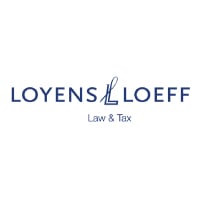

General Counsel | TomTom International BV




Simon Hughes
General Counsel | TomTom International BV
Team size: 26
What are the projects that you are most proud of working on over the past 12 months?
We are currently fighting an antitrust case against Google. Google is dominant in the market for “search”, with over 90% market share. In the enterprise sector, Google’s terms and conditions prohibit their Search/Places API being used with a non-Google map. The effect is to foreclose the market to alternative mapping providers. Similarly, in the automotive sector, Google Automotive Services (GAS) again requires that use of their search service and Play store (the latter being relevant in this industry) is conditional upon licensing their full product suite, again creating foreclosure. The case is being handled by the German competition authorities.
As a mapping company, TomTom licenses its map database under use case-based licensing models where certain use cases attract significantly higher prices. Therefore, we contractually limit the use of our data to these specific uses. Recently, TomTom took the strategic decision to transition from using fully proprietary data to using Open Street Map (OSM) data for the base layers of our map. We then complement these with high value proprietary data layers. The challenge is that OSM data is subject to a share-alike license, allowing use of the data without restriction. Proprietary data can be integrated with OSM data without attracting the share-alike provisions but must be integrated in accordance with OSM guidelines.
Given TomTom’s use case-based licensing model, we need to ensure that the share-alike provisions do not apply to our “value add” data, where we continue to license with usage restrictions. The same applies to customers that further integrate data into our map. To adhere to these requirements, the legal team has been at the forefront of redesigning our product creation processes, rebuilding commercial licensing models and designing product marketing materials to address these challenges. Specifically, we implemented a company-wide training program, designed (with engineering) IP filtering technology to ensure the correct integration of data sets and reworked our licensing templates and commercial models. We then instructed our internal auditors to audit the processes to identify weaknesses and areas for improvement.
This has been a full business transformation in terms of culture, mind set and process. It has been the most interesting and challenging project of my career.
When I became general counsel, our patenting activities were at a standstill and our portfolio was focused on legacy businesses. We have rebuilt the function, starting with rehiring the team and conducting a patent landscape to understand our portfolio and its competitive positioning. Once complete, we mapped the portfolio to our technology landscape, culled legacy patents and established a strategic harvesting initiative. This initiative actively targets inventions from areas where we will derive future revenues. Dashboarding was then created to enable continuous evaluation of invention pipelines from strategic technology teams. Consequently, we now have an optimised portfolio with new filings increasing by a factor of ten over the prior three years.
What do you think are the most important attributes for a modern in-house counsel to possess?
In-house counsel should be guardians of value with the aim of managing risk, not eliminating it. The focus should be on ensuring long-term value growth. Consequently, wherever possible, we should be saying “yes” to the business. To achieve this, in-house counsel must not only possess excellent legal skills (I expect my team’s core legal skills to match those of private practice lawyers), but also an in-depth understanding of the company’s commercial drivers. As such, when onboarding team members, we invest significant time training on products, customer markets and commercial strategy.
Based on your experiences in the past year, are there any trends in the legal or business world that you are keeping an eye on, of which you think other in-house lawyers should be mindful?
Generative AI is undoubtedly going to have an impact on how we work. I don’t believe it will result in job losses but rather enhance productivity for lower value work, allowing more focus on higher value activities. It will, however, challenge the traditional model of how we train and develop young lawyers, as it eventually takes over basic tasks currently performed at a junior level.